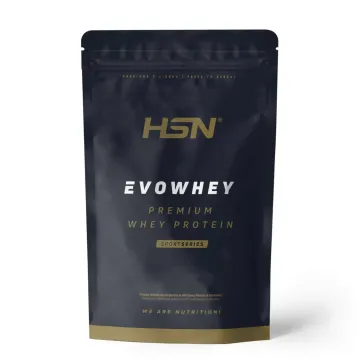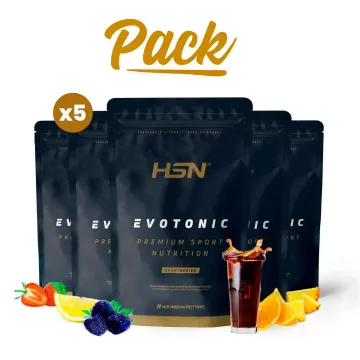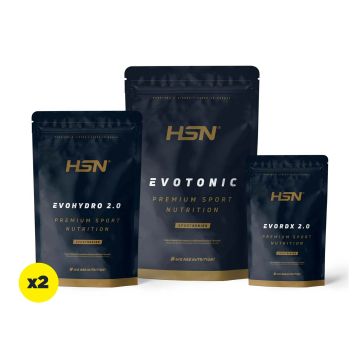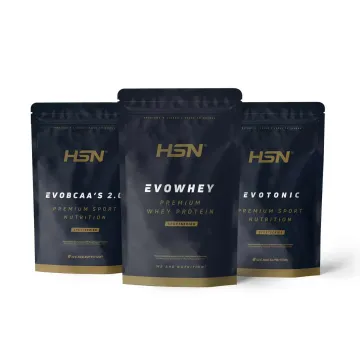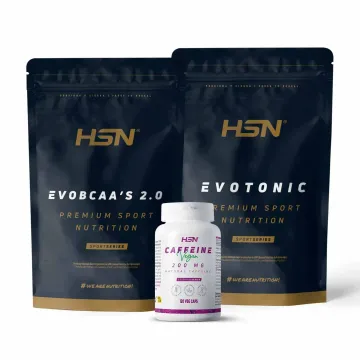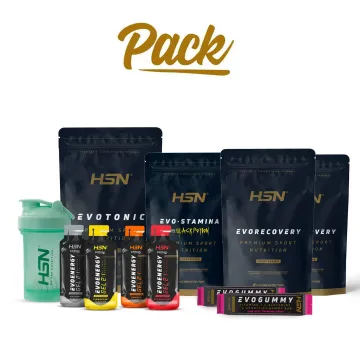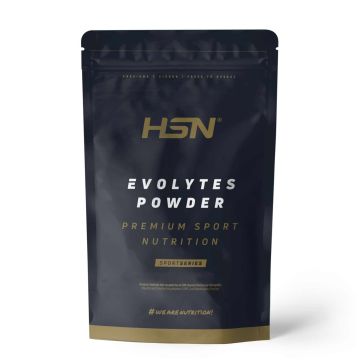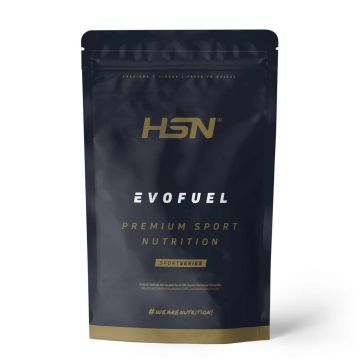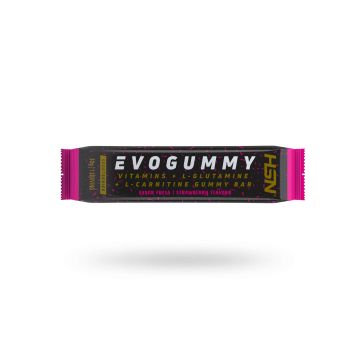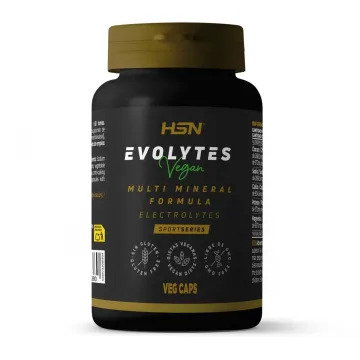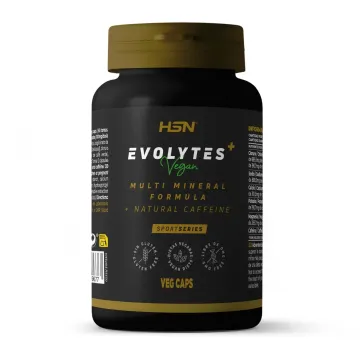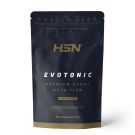Evotonic: hydration and fuel for when your workout goes long
Evotonic from SportSeries is a food prep for isotonic drinks, flavored, based on carbohydrates, amino acids, hydrolyzed casein, and minerals, with sugars, and with sugars and sweetener in the flavored versions.
In powder form: to easily prepare an isotonic drink, designed for longer or more demanding endurance training and competitions. In practice, this means a drink you can sip while training to keep a regular and sufficient intake of water + salts + energy, without it feeling heavy or “cloying” after many hours.
If you struggle to drink on long runs or have a sensitive stomach, here the goal is for the bottle to help you, not get in your way.
Who’s Evotonic for?
High-demand endurance
Long-distance running, trail, cycling, triathlon, gravel, long marches… When the effort lasts, sweat builds up and energy isn’t just about lasting the duration, you need real fuel during the session.
Demanding workouts even if not ultra
Long intervals, hot/humid days, double sessions or heavy weeks. It also fits sports where you alternate intense efforts for a long time (like Hyrox, long boxing/fighting sessions, or team sports in summer).
Athletes with sensitive stomachs
If you’re the type who gets overwhelmed by sweet drinks or feels nauseous when pushing the pace, Evotonic’s idea is to give you everything you need without getting heavy.
Isotonic, hypotonic, and hypertonic: the difference you really feel
Confused about the terms? Here’s the gist
We talk about “tonicity” to describe how concentrated the drink is compared to your body fluids: lower (hypotonic), similar (isotonic), or higher (hypertonic).
What happens on the road
For long efforts, you usually want a balance: good hydration, no “sloshing” in your stomach, and energy (calories) too. If a drink is too concentrated, it can feel heavy; if it’s too “watery”, it hydrates (with nuances, since in some cases you need enough sodium intake to avoid hypotonic hydration), but either way you’ll have to find energy elsewhere.
Why “real isotonic” matters
Many drinks call themselves isotonic by “market habit,” but it’s not always lab-checked. Here osmolality is measured by osmometry, and you can check the analyses in the 'EXTERNAL LAB ANALYSIS' tab. This is key because, in practice: tolerance and hydration depend a lot on that balance.
Important: if you change the water ratio a lot, you change the tonicity. That’s why it’s crucial the product is designed and measured as isotonic at the recommended prep (in our case, 35g / 400ml).
Evotonic’s nutrient benefits
- Carbohydrate-based electrolyte solutions help maintain endurance levels in prolonged exercise.
- Carbohydrate-based electrolyte solutions improve water absorption during physical exercise.
Magnesium:
- Helps reduce tiredness and fatigue.
- Contributes to electrolyte balance.
- Contributes to normal energy metabolism.
- Contributes to normal nervous system function.
- Contributes to normal muscle function.
Proteins help preserve muscle mass.
Carefully selected carbohydrates
2:1 glucose:fructose ratio for better absorption
Evotonic combines glucose sources (like highly branched cyclic dextrin and dextrose) with fructose sources (fructose and also isomaltulose, which provides glucose and fructose). This 2:1 approach is the classic “multiple transportable carbohydrates” from Asken Jeukendrup’s research line: you use different absorption routes so you can tolerate and make better use of carbohydrate intake.
Cluster Dextrin™: less sweetness, more practical
Highly branched cyclic dextrin (Cluster Dextrin™) offers carbs with a very interesting profile: it helps provide energy without turning the drink into syrup. Simply put: besides the nutritional benefits from its specific composition, it lets you add more carb concentration to the isotonic without the sweetness going through the roof.
Isomaltulose (Palatinose™): the perfect complement
Isomaltulose is a source of glucose and fructose. In a drink for long efforts, it fits perfectly as part of the fructose supply: it completes the isotonic without relying on just one carb type.
Complete electrolytes: not just “salt”
High sodium for heavy sweat days
Evotonic stands out for its sodium content (over 950mg per 100g). On hot, humid, or heavy sweating days, this can make a big difference during training.
Chloride and magnesium: the right companions
Besides sodium, we add chloride and magnesium salts. And the sodium we use also comes from citrates, which improve mouthfeel and reduce the digestive impact of the drink’s electrolyte content. Forget isotonic drinks that taste like “seawater.” With Evotonic, we carefully crafted the mineral profile for balance and a pleasant taste.
Tip! How to choose based on your sweat
Some athletes lose a lot of sodium, others much less. If you often end up with a white “crust” on your clothes or struggle to finish sessions in heat, you usually want an isotonic with more generous sodium. If you sweat little or train in mild climates, you can still use it, but maybe you don’t need to load that hard every day and can combine Evotonic with water + diluted gels.
Isotonic with protein: how and why?
What PeptoPro® adds in an intra-workout drink
Evotonic’s protein is there to provide amino acids that are super easy to digest: PeptoPro® is hydrolyzed casein, rich in di- and tripeptides. For very long efforts or when you’re stacking hours and kilometers, it’s a big plus.
Added BCAAs (L-leucine, L-isoleucine, L-valine)
Besides peptides, we included BCAAs as an amino acid boost in a context where your body is working for a long time.
When Evotonic pays off vs. Evocarbs 2.0
For easy, short runs, Evocarbs 2.0 is more than enough. Evotonic shines when the effort goes long, when there’s more wear and tear or when the environment (heat/humidity) makes balanced drinking and eating tougher.
Balanced flavor: sweet without cloying and an unflavored option
Avoid flavor fatigue on long runs
After hours, the last thing you want is a sweetness that “wears you out.” Evotonic aims for a pleasant but mild flavor so you can keep sipping without stress.
Unflavored: your wildcard for mixing
The unflavored version is especially handy if you’re carrying gels, bars, or even some “real” food: it doesn’t “clash” and lets you play with whatever you want during the race.
Variety to rotate through the week
Having several flavors helps a lot to avoid hating the isotonic, especially if you train every day. If you alternate (like citrus one day and cola or more “neutral” options another…), it’s easier to keep up your intra-workout hydration routine.
Digestion and tolerance: made for sensitive stomachs
Evotonic feels light
The secret is balance: measured tonicity (genuine isotonic), with a carb mix carefully selected and sweetness that doesn’t overwhelm. Together, this makes Evotonic a drink that goes down easy.
Isotonic even at a high concentration (8.75%)
A practical advantage is it can keep isotonic behavior at high concentrations (8.75%; e.g., 35g in 400ml). This lets you get a good carb load without turning the bottle into a heavy drink, thanks to the high molecular weight that affects osmotic pressure less, thanks to the use of technological carbs.
If you tend to feel nauseous when pushing
Start with small, steady sips, and try the peri-workout protocol in training (don’t debut it on race day). If a flavor “wears you out,” switch to unflavored or rotate to another. Often the problem isn’t the isotonic but the combo of intensity + heat.
- Consistency > attraction: better little and often than a big gulp of isotonic at once.
- Train the strategy: what you tolerate can be practiced. We’ll tell you more below!
- Mind the context: heat + intensity raise the risk of discomfort, hydrate properly.
Gut Training: train your gut like you train your legs
What this training technique is
“Gut training” is getting your digestive system used to carbs and fluids while you train. Just like you improve endurance with weeks of running, you can improve digestive tolerance with practice.
How to apply it with Evotonic
Evotonic doesn’t need “Gut Training”, since it’s well tolerated, but if you use the isotonic extensively (>90g net carbs/hr), use it planned in key workouts: start on controlled days and gradually increase carb and fluid intake. The glucose+fructose mix is designed precisely to make that progression doable.
Typical mistakes
Waiting to “need it” to try it, changing everything the week of the race, or concentrating it too much “because that way I get more.” If you want to test, do it smart and with prior trials.
Format and use on the road: dissolves fast and travels with you
Fast dissolution, no grit
Texture matters: when a drink leaves lumps, it ends up unpleasant. Evotonic is designed to mix well and stay smooth and residue-free.
No shaker needed. Just fill the bottle and shake, and you’re good to go. This is key for races, trips, or training outdoors.
Single doses available for races and training away from home
If you compete or travel, single doses are super handy: you carry just what you need, no heavy Evotonic bags to lug around. You set up your fueling wherever, in no time.
Examples of peri-workout for endurance
Pre-workout
You can use Evostamina before heading out. If you train fasted, you can also include a light meal with low-fiber carbs, some protein, and low fat to start energized.
During
Evotonic as your base bottle, then “mix & match” depending on the session: gels, bars, or Evogummy. The unflavored version fits especially well if you’re already carrying sweet gels or bars.
After
When you finish and can eat calmly, a product like Evorecovery powder is the perfect finish. The key: rehydrate, replenish energy, and ensure enough protein and carbs.
There’s no “perfect plan” for everyone. The best strategy is the one you practice and that fits you.
It also has a place outside endurance
Some sports don’t have you sweating for many hours but the body suffers similarly: Hyrox, cross-training, summer games, hot combat training, or double sessions. If the environment makes you sweat and you struggle to keep pace, starting Evotonic is a game changer.
Q&A for athletes
Can I use it if I’m not doing ultra-endurance?
Yes. If your session is demanding, you sweat a lot, or you train in heat/humidity, it makes sense even if the sport isn’t classic “endurance.”
Is it better than plain water?
Yes. Though for a short, easy session, water might be enough. When there’s sweat + time + intensity, you also need electrolytes and carbs.
Can I carry it in a soft flask or backpack?
Yes. The key is to respect the recommended prep and the amount that works for you per hour (which you’ll have tested in training).
Can I mix it with gels, bars, or real food?
Yes. In fact, it’s designed to coexist with other nutrient sources during the race.
What if it feels heavy?
Lower the amount per intake and increase frequency (smaller sips, more often), check the heat, and try another flavor next session. And above all, check how much you use: if it’s very high, remember the gut also needs training.
Does it contain allergens?
Yes. It includes milk-derived protein (from hydrolyzed casein PeptoPro®). If you’re allergic to milk protein, it’s not for you. It also contains fructose.
Scientific bibliography
- Currell, K., & Jeukendrup, A. E. (2008). Superior endurance performance with ingestion of multiple transportable carbohydrates. Medicine & Science in Sports & Exercise, 40(2), 275–281.
- Jeukendrup, A. E. (2004). Carbohydrate intake during exercise and performance. Nutrition, 20(7–8), 669–677.
- Jeukendrup, A. E. (2017). Training the gut for athletes. Sports Medicine, 47(Suppl 1), S101–S110.
- Lara, B., Gallo-Salazar, C., Puente, C., Areces, F., Salinero, J. J., & Del Coso, J. (2016). Interindividual variability in sweat electrolyte concentration in marathoners. Journal of the International Society of Sports Nutrition, 13, 31.
- Sawka, M. N., Burke, L. M., Eichner, E. R., Maughan, R. J., Montain, S. J., & Stachenfeld, N. S. (2007). Exercise and fluid replacement. Medicine & Science in Sports & Exercise, 39(2), 377–390.
- Shi, X. (2010). Water and solute absorption from carbohydrate-electrolyte solutions in the human duodenojejunum. International Journal of Sport Nutrition and Exercise Metabolism, 20(5), 427–442.
- Saunders, M. J. (2007). Coingestion of carbohydrate-protein during endurance exercise: Influence on performance and recovery. International Journal of Sport Nutrition and Exercise Metabolism, 17(Suppl 1), S87–S103.
- Takii, H., Kometani, T., Nishimura, T., Kuriki, T., & Fushiki, T. (2004). A sports drink based on highly branched cyclic dextrin generates few gastrointestinal disorders in untrained men during bicycle exercise. Food Science and Technology Research, 10(4), 428–431.
 Before
Before After
After During
During Morning
Morning Afternoon
Afternoon Night
Night Before
Before After
After During
During Morning
Morning Afternoon
Afternoon Night
Night Before
Before After
After During
During Morning
Morning Afternoon
Afternoon Night
Night Before
Before After
After During
During Morning
Morning Afternoon
Afternoon Night
Night Before
Before After
After During
During Morning
Morning Afternoon
Afternoon Night
Night Before
Before After
After During
During Morning
Morning Afternoon
Afternoon Night
Night Before
Before After
After During
During Morning
Morning Afternoon
Afternoon Night
Night Before
Before After
After During
During Morning
Morning Afternoon
Afternoon Night
Night Before
Before After
After During
During Morning
Morning Afternoon
Afternoon Night
Night Before
Before After
After During
During Morning
Morning Afternoon
Afternoon Night
Night Before
Before After
After During
During Morning
Morning Afternoon
Afternoon Night
Night Before
Before After
After During
During Morning
Morning Afternoon
Afternoon Night
Night Before
Before After
After During
During Morning
Morning Afternoon
Afternoon Night
Night Before
Before After
After During
During Morning
Morning Afternoon
Afternoon Night
Night Before
Before After
After During
During Morning
Morning Afternoon
Afternoon Night
Night Before
Before After
After During
During Morning
Morning Afternoon
Afternoon Night
Night Before
Before After
After During
During Morning
Morning Afternoon
Afternoon Night
Night Before
Before After
After During
During Morning
Morning Afternoon
Afternoon Night
Night Before
Before After
After During
During Morning
Morning Afternoon
Afternoon Night
Night Before
Before After
After During
During Morning
Morning Afternoon
Afternoon Night
Night Before
Before After
After During
During Morning
Morning Afternoon
Afternoon Night
Night Before
Before After
After During
During Morning
Morning Afternoon
Afternoon Night
Night Before
Before After
After During
During Morning
Morning Afternoon
Afternoon Night
Night Before
Before After
After During
During Morning
Morning Afternoon
Afternoon Night
Night Before
Before After
After During
During Morning
Morning Afternoon
Afternoon Night
Night Before
Before After
After During
During Morning
Morning Afternoon
Afternoon Night
Night Before
Before After
After During
During Morning
Morning Afternoon
Afternoon Night
Night









